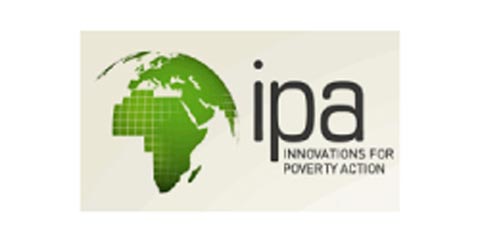Scaling the use of community chlorine dispensers
2010 - 2015 • Innovations for Poverty Action (IPA) and Evidence Action
Purpose
To pilot different business models and partnerships in developing countries in order to scale up the use of chlorine dispensers which provide longer protection for safe water.
Activities
The BMGF grant that ran from 2010 to 2014 was used for the research to develop community chlorine dispensers for safe water. It was carried out by Innovations for Poverty Action (IPA). A review of the evidence that came out of this (and other people’s) research is available here:
http://www.evidenceaction.org/blog-full/chlorineevidence
Evidence Action took over Dispensers for Safe Water explicitly to take it to scale. Evidence Action spun off from IPA in 2013 - see http://www.poverty-action.org/node/6031. All operations and grant agreements were formally transferred to Evidence Action from IPA in late 2014 with the support of our current donors. We are now at 4.3 million users (current for Feb 2016) for Dispensers for Safe Water.
Unsafe drinking water is a global problem, with almost one billion people currently without access to an improved water supply. Chlorine dispensers take on the safe drinking water challenge.
• We treat water with chlorine, a proven, low-cost water treatment solution.
• We focus on sustainable service delivery, not a one-time hardware installation.
• We measure success by actual use of chlorine, and by leveraging cues from behavioral economics to achieve high rates of adoption.
• We take on the challenge of sustainability and solve it, but do not resort to user fees which would screen out many households.
• Our carbon revenue business model is a self-financing one that only requires an infusion of up-front capital and that incentivizes us to achieve and measure accurately high rates of product usage.
Dispenser access is free to users. But Evidence Action does not rely solely on donations or grant funding to cover the costs of service delivery.
Instead, Evidence Action works with experts to develop, monitor, audit, issue and sell carbon credits. They use the revenues earned from carbon sales to reinvest in the program, ensuring that the program is sustainable over the long term.
Countries of activity
Location of main activity
Objectives
The goal of the research project in 2010-2014 was to pilot different business models and partnerships in developing countries in order to scale up the use of chlorine dispensers which provide longer protection for safe water
Further information
A part of project was funded under the USAID DIV scheme.
Evidence Action took over from Innovations for Poverty Action to run this
Dispensers for Safe Water is supported by many donors. It is a mature project now serving 4.3 million people in East and Southern Africa. There is no target end date for this program.
BMGF grant size: USD $ 3,300,000
Videos
Chlorine Dispensers for Safe Water in Uganda
Filter tags
Behaviour change Bill & Melinda Gates Foundation Health and hygiene North America Practitioners Private sector, including social enterprises Rural Specific to one or several countries Sub-Saharan Africa United States government
Links

Uploaded by:
danijela milosevic (milli)















